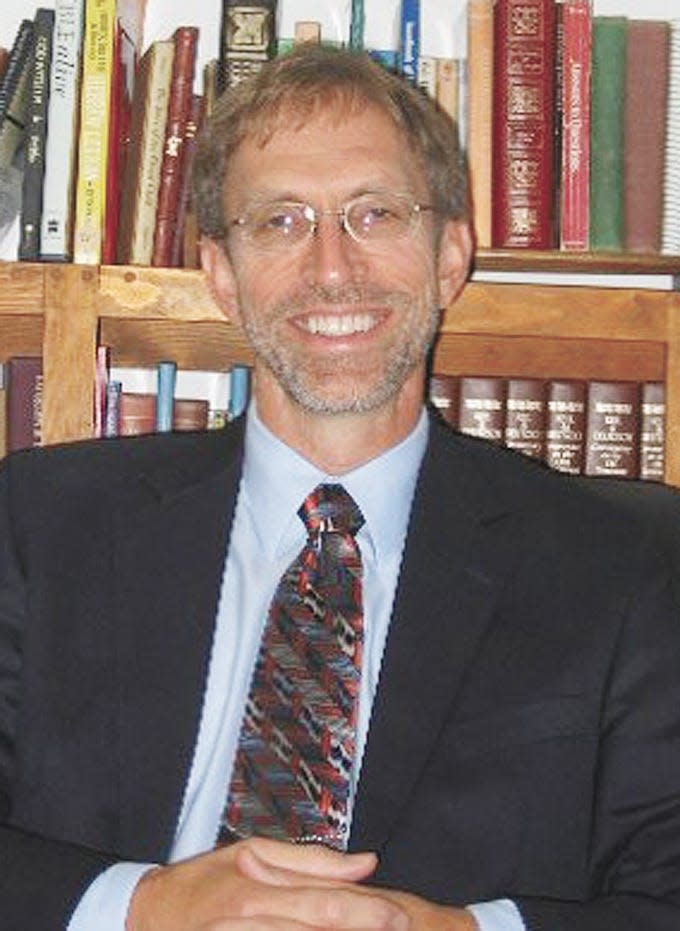Shayne Looper: Nurturing faith in times of uncertainty
Ordinary people hate uncertainty. In a Dutch study, volunteers were separated into two groups. One group was told that they would receive 20 sharp electrical shocks. The other was told they would receive three strong and seventeen mild shocks, but they would not know when the short shocks would come.
Volunteers were monitored throughout the experiment. Those who knew they would receive twenty sharp shocks had lower heart rates and sweated less than those who knew they would receive only three strong shocks, but were uncertain about when they would occur. The uncertainty troubled them more than the shocks.

In interviews with colostomy patients conducted six months after surgery, those who had known from the beginning that their colostomies would be permanent were happier than those told there might be a chance of reversing the procedure. The uncertainty got to them.
Not a week goes by without someone in our church family waiting for the results of a medical test, like a biopsy, blood work, or cardiac stress test. Sometimes, there is a lot at stake. The results could mean significant changes for the patient and their family.
The interval between realizing a problem and receiving the test results is an uncomfortable time. Questions badger the mind: What if it is cancer? What will happen to me? What will happen to our finances? How will the family cope?
We try to set the questions aside, but they come back — sometimes within seconds. Prolonged uncertainty is a painful trial. In good news, our minds can rest. Even in bad news, our minds can find ground on which to reset and steady themselves. (I’ve seen people quickly regain a positive attitude after getting bad news.) But uncertainty gives us no ground to stand on.
Yet, uncertainty serves an essential purpose in our lives. It gives us space for discovery and growth. It reminds us to be humble. It makes room for faith. Because this is true, we need to make room for uncertainty.
The English romantic poet John Keats, who was only 25 years old when he died of tuberculosis, regarded the ability to live contentedly in uncertainty as a great strength. He called it a “negative capability,” and described it as “being in uncertainties, mysteries, doubts, without any irritable reaching after fact and reason.”
Keats did not disapprove of fact and reason but of the “irritable reaching after” them, which does not happen because we want to learn but because we want to control. We prefer a false certainty that allows us to feel in control to a productive uncertainty that discomfits us. We prefer to rest on solid ground than labor in the loamy soil of uncertainty.
Uncertainty is the soil in which faith grows. When everything is going fine, who needs faith? When everything goes wrong, we are as likely to blame God as trust him. It is when we don’t know how things are going that we learn to trust.
Faith may grow wild in the soil of uncertainty, but it grows best when it is cultivated. Faith needs good seed, which, as Jesus once put it, “is the word of God.” Receiving this good seed — being exposed to God’s word regularly — is necessary for faith to grow and bear fruit. A thoughtful, prayerful reading of Scripture can facilitate this.
The soil of our lives needs to be weeded. Sins must be confessed and uprooted. Doing so will have a profound impact on the heartiness of one’s faith.
Faith also needs to be refreshed, like plants need to be watered. Worship provides this. But it is not enough to attend a worship service; we must actually worship while we are there. And when we are not there. A connection is established with God in worship that builds faith.
Most of us would prefer to avoid uncertainty, but that is not always possible, nor is it necessarily helpful. When uncertainty is our lot, we need to learn to live in it without “irritable reaching after” control. It is prime time for spiritual development and the growth of faith.
— Find this and other articles by Shayne Looper at shaynelooper.com.
This article originally appeared on Sturgis Journal: Shayne Looper: Nurturing faith in times of uncertainty

